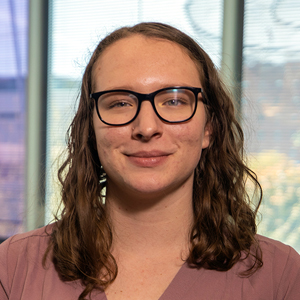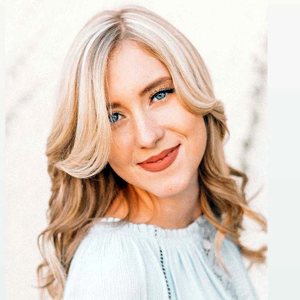PHOENIX – Social distancing is starting to show signs of flattening the curve on hospitalizations in Maricopa County, and state health officials are urging the public to continue taking all necessary precautions, 12News reported.
There are 1,689 confirmed cases of COVID-19 in Maricopa County alone, the highest number in any of Arizona’s 15 counties. The pace of confirmed cases appears to be slowing, but experts still expect hospitalizations will peak by the end of April.
As of Thursday, April 9, the Arizona Department of Health Services reported 3,018 cases of COVID-19 in the state and 89 deaths. The department said 37,178 tests for COVID-19 have been completed as of Thursday and 34,416 tests were negative.
“What we’re doing with social distancing seems to be working because we’re already starting to see that slope flatten out,” Dr. Rebecca Sunenshine, Maricopa County’s medical director for disease control, said in a press conference Wednesday. “The evidence shows that if you pull back (social distancing guidelines) all at once, you might see another peak.”
Joe Gerald, a health services researcher at the University of Arizona, cautioned against loosening social distancing restrictions, telling 12News that “maintaining or increasing our social distancing efforts over the coming weeks should remain our highest priority.”
Arizona health officials recommended last week that Arizonans wear nonmedical face coverings when outside the home to prevent transmission of the novel coronavirus that causes the respiratory disease COVID-19.
“What they are finding in the data is that people can be spreading the virus up to two days before they start showing symptoms,” Dr. Cara Christ, the Arizona Department of Health services director, told the Arizona Republic. “So there’s that asymptomatic spread. If you wear a mask when you are out in public, you are less likely to expose others.”
Wearing masks isn’t mandatory, but health officials say they should be worn to protect yourself and those around you. Proper handwashing and social distancing should still be followed even when covering your face, the Republic said.
Face coverings should only be worn if it is safe to do so, anyone who has trouble breathing or children younger than 2 should not wear a mask, health officials said on Wednesday. N95 and surgical masks should only be worn on doctor’s orders; otherwise, bandanas and scarves will work.
Using location tracking data, Google and Unacast said Arizona’s grade on social distancing improved to a “B-” on Thursday, up from a “C” earlier this week. The state’s average grade is based on the tracked decreases in people’s general movement and their nonessential visits. The country is currently earning a “C+” on social distancing, according to the tech companies’ analysis.
USDA grants Arizona approval for SNAP online purchasing
Arizonans receiving Supplemental Nutrition Assistance Program benefits will be able to use them for online food purchases, according to a press release Thursday from Gov. Doug Ducey. Online retailers authorized for SNAP include Walmart and Amazon. The U.S. Department of Agriculture’s Food and Nutrition Service granted the request, and the changes will be implemented in early May.
Internet for students in rural communities
Arizona on Wednesday announced a “mobile hotspot donation drive” to provide hotspots for K-12 students without home internet. The Arizona Commerce Authority and the Arizona Department of Education will match donated hotspots, according to a news release. The state is offering 200 hotspot devices for students, which will include internet subscriptions filtered for appropriate online content.
Pinal County reports first deaths
Pinal County health officials Thursday reported the county’s first three deaths, with 138 positive test results. Two of the three patients had underlying health issues and were both older than 70, the Daily Independent reports.
Race for a COVID-19 cure
Arizona State University is collaborating with Southwest College of Naturopathic Medicine in Tempe to find plant-based herbal treatments that might combat COVID-19, according to Phoenix New Times. The researchers are currently searching for the plants to use, despite controversy.
“There is no scientific evidence that any of these alternative remedies can prevent or cure the illness caused by COVID-19. In fact, some of them may not be safe to consume,” the National Institutes of Health has warned.
Meanwhile, Ducey is allowing limited use of hydroxychloroquine, the anti-malarial drug endorsed by President Donald Trump, dividing health officials over “whether he’s gone too far or not far enough,” Cronkite News reported Wednesday.
Page man urges violence against Navajos
Police arrested a 34-year-old Page man accused of writing a racially motivated social media post Wednesday that called for the deaths of Navajo people and accusing them of carrying COVID-19. Daniel Franzen was taken into custody “on suspicion of attempting to incite an act of terrorism,” according to KJZZ’s Fronteras Desk. After receiving reports of a post on Facebook urging people to “use lethal force against Navajos,” investigators traced it back to Franzen. Amber Kanazbah Crotty, a Navajo Nation Council member, said in a statement to Fronteras that this “exemplifies progress between the communities” on the reservation and the towns that border it, because of the action taken by the police department.
Groups in Arizona are tackling equipment shortages
The Innovation Center at Barrow Neurological Institute in Phoenix announced it will be developing N95-substitute masks, face shields and surgical masks, the Daily Independent reports. When the COVID-19 pandemic began, the center began using its 3D printing and silicone molding techniques to create masks to address the global shortage of personal protective equipment for health care workers. Banner Innovation Group and Walter LLC also are working on producing PPE, the Daily Independent said.
UArizona tuition revenues to drop
University of Arizona officials are bracing for a possible drop in enrollment – and tuition income – because COVID-19 could prevent students from returning in the fall, UArizona President Robert Robbins said. “We just don’t know by the fall where people’s minds are going to be about coming back to campus or not,” Robbins told KJZZ, noting that out-of-state and international students account for much of the school’s tuition revenue and those students may be affected.
Valley Metro reduces light rail services
Valley Metro announced Wednesday that it will reduce light rail services starting Saturday. The light rail will be on an adjusted schedule with a 15 minute frequency and now will run from 4 a.m. to 6 p.m. Mondays-Saturday, Valley Metro said. The Sunday operations are not affected at this time. Valley Metro also added temporary safety measures on the light rail and aboard buses: Seats near the operator are blocked off, valid fare is required and bus riders will be asked to enter from the rear door to distance themselves from operators and fellow passengers.
WWII veteran sings to neighborhood
Frank Hobbs, 94, a retired Navy radio operator, shares his love for music with his neighbors through singing on his back porch, 12News reports. “Singing is just good for the soul. You know, I’m 94, I can breathe well, it makes you read, it makes you think, it’s good exercise, and I can’t do much of anything else really,” he told the station.
AHCCCS to provide money to hospitals
The Arizona Health Care Cost Containment System, Arizona’s Medicaid program, announced Wednesday that more than $50 million will be made available for accelerating hospital payments, with an extra $5 million to critical access hospitals.
“As health care leaders, we are committed to doing our part to ensure Arizona’s hospital systems provide excellent care for patients during this COVID-19 crisis but that comes at a significant cost,” said Jennifer Carusetta, executive director of the Health System Alliance of Arizona.
AHCCCS also is exploring federal approval to secure an additional $270 million for hospital advances, according to a press release. Arizona was among the first states to submit a request to waive certain Medicaid and KidsCare (CHIP) program requirements in response to the COVID-19 outbreak.
How to help
The HOPE homeless outreach team is seeking donations of bottled water for people who live outdoors and need to stay hydrated as temperatures increase. Tempe’s outreach specialists “are distributing water, snacks, hygiene items and educational information about COVID-19 to help ensure that individuals and families who are homeless stay nourished, healthy and safe,” according to a city update Wednesday. Contact Homeless Solutions Supervisor Nichole Stevens at Nichole_Stevens@tempe.gov to donate.



